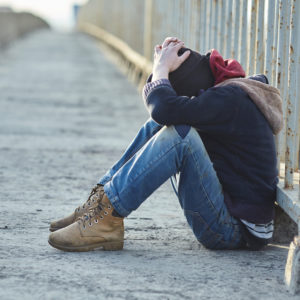Rescuing neighbors from freezing weather should not be a crime. Yet zoning officials in Akron, Ohio, cracked down on Sage Lewis when he told homeless campers they could pitch tents on his commercial property after evictions from public land in January 2018.
Rules are rules, the city told Lewis, even when people cannot find shelter elsewhere.
Similar attitudes nationwide have exacerbated a housing shortage pricing many buyers out of the market. Supply chain disruptions related to COVID-19 have contributed to the crisis, but the root of the problem is not the pandemic. It is a lack of concern for property rights.
Rigid and discriminatory zoning ordinances, which tell people what they can do on their land, have driven up prices and reduced housing options for decades. Presidents Obama, Trump and Biden all came to the same conclusion. The feud in Akron provides just one example of harmful meddling.
Lewis initially set up a few tents on platforms behind his property to keep campers off the cold ground. He also converted indoor space into a community day center with food, showers, clothing, laundry facilities and computers.
Guests saw Lewis as a lifesaver. The zoning police saw a scofflaw.
After rejecting Lewis’ application for a conditional use permit, the city ordered him to clear the encampment. Sage and The Homeless Charity, a local organization, fought back, seeking a variance to allow an emergency tent shelter and then with a lawsuit to establish a person’s right to temporarily use tents to rescue the homeless from life-threatening perils. Our public interest law firm, the Institute for Justice, represents the charity.
The case asks whether garden-variety zoning considerations like “harmony” allow Akron to force Sage to drive the most vulnerable people off his property into the night. After losing at the trial court level and again in the state Court of Appeals on May 11, 2022, the charity has vowed to take its case to the Ohio Supreme Court.
While the dispute continues, property rights abuses multiply elsewhere. Officials in Calhoun, Ga., told Cindy Tucker in 2021 that her nonprofit organization, Tiny House Hand Up, could not build 600-square-foot homes on its land. City zoning laws only allow the construction of larger houses.
Zoning rules are even tighter in Big Water, Utah. The city told Chrissy Rochford that she could not build a 1,600-square-foot home — or any home smaller than 2,000-square-feet — on a plot of land that otherwise would be perfect for her dog and horses. By comparison, the average U.S. home did not top 2,000 square feet until the late 1980s.
Families have gotten smaller since then, while homes have gotten bigger. Yet the extra space is not always by choice. Many municipalities impose square footage minimums, block multifamily housing, and enforce other rules that exclude lower-income earners. Options remain for people with resources, but the property rights restrictions make it impossible to build modest homes for everyone else — even in rural America.
Many residents in Richfield, Utah, cannot find places to rent, so they live in motel rooms. The long-term guests include families with children and battered women escaping abusive relationships.
Rather than thanking the motel owners for providing shelter, the City Council has turned them into criminals. An ordinance, which took effect in January 2022, bans motel stays longer than 90 days to free up space for tourists.
Not to be outdone, officials in Shawnee, Kansas, have criminalized roommates. A new ordinance makes it illegal for friends to split rent in single-family residential zones.
Other restrictions have become common, forcing millions of families to make difficult choices. Home shoppers who no longer can afford mortgages must rent. Those who cannot afford rent must look for temporary or subsidized housing. And when those options run out, people look for safe places to camp.
Lewis, who runs a political organization called the Houseless Movement, traces much of the pain to property rights violations. “We are private citizens on private land, spending private money to take care of those most in need,” he says.
People need places to sleep. But extreme zoning and building laws stand in the way. That situation — regulating affordable housing into near non-existence — is a result of ignoring property rights for generations. Until courts enforce constitutional standards, more and more people will find themselves left out in the cold.


